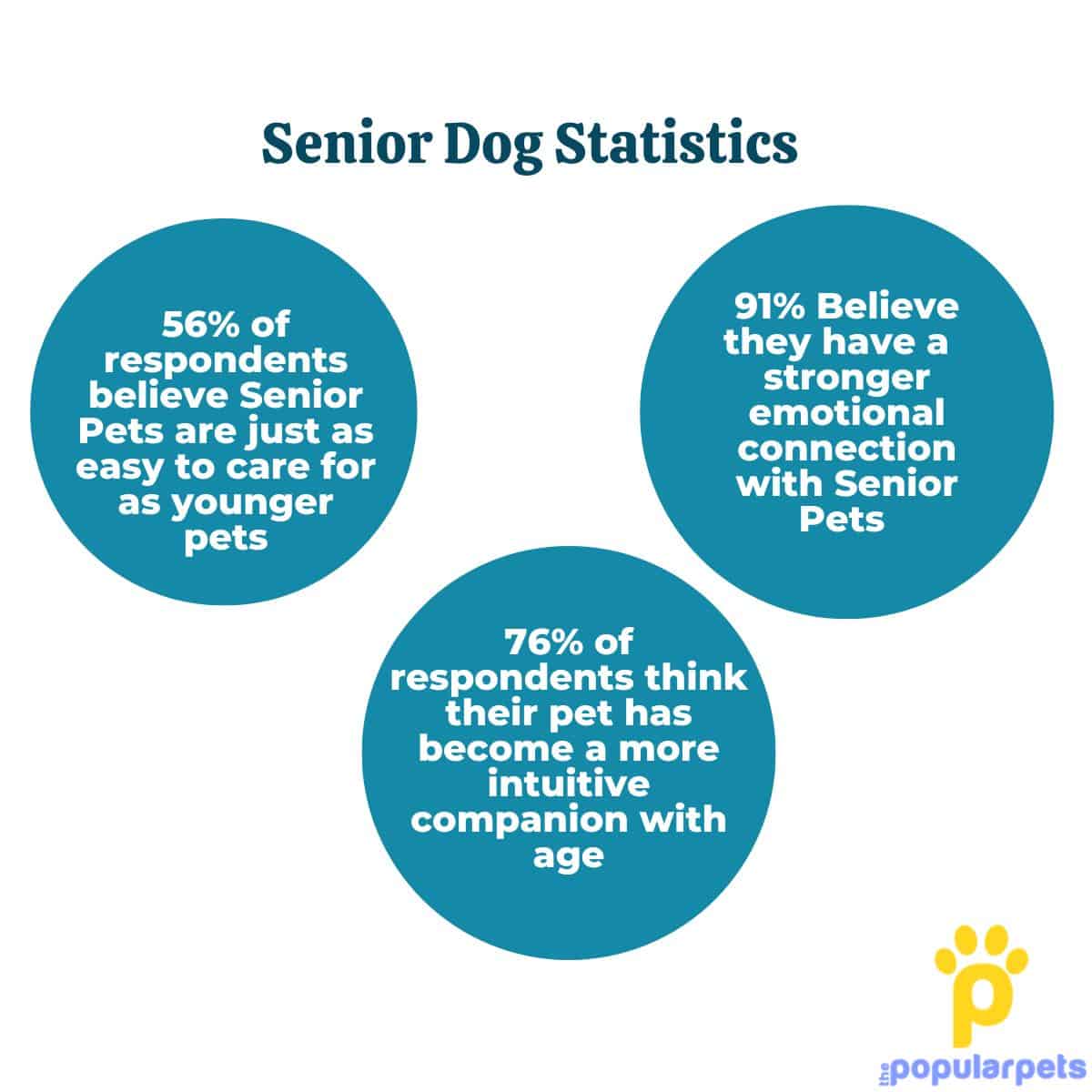The saying you can’t teach old dogs new tricks seemingly must bear some accuracy if it has lasted for 500 years but new research suggests that it is in fact not accurate at all and you in fact can teach an old dog new tricks. Added to that there is a new study that shows that 71 percent of pet parents believe their furry friend has gotten smarter over the years. This just shows us that older dogs are learning new tricks!

Can Older Dogs Learn New Tricks?
Yes, you can teach an older dog new tricks. If you are a senior dog lover like us, you know that living with a senior dog is humbling and can teach us so much about aging gracefully. Senior dogs may need a new approach but they still have the capacity to learn and experience new things.

The recent data supports this as 87 percent of respondents said that you really can teach an old dog new tricks. Additionally, parents of senior pets said they have a stronger emotional connection with their pet than those who have younger pets (91% vs. 85%).
Conducted by OnePoll for Stella & Chewy’s, the survey found that although owning a younger pet has its perks – like them having more energy (64%) and fewer health issues (54%) – pet parents reflected on the fact that younger pets need more training (61%) and are more likely to have accidents (55%).
Parents of senior pets get to skip over some of those worries about training (69%) or misbehaving (64%) and even think senior pets are just as easy to care for as younger pets (57%).
As my dogs aged, they became even smarter companions, giving me a fresh perspective that I carry with me every day.” says Marie Moody, founder of Stella & Chewy’s.

How to Teach Older Dog New Tricks
So now we know that in general old dogs can learn new tricks and we certainly know Henry Ford’s observation, that “anyone who stops learning is old, whether at twenty or eighty.” Senior dogs not only can learn new tricks they in fact need to learn new tricks as we discuss in our Ultimate Guide to Dog Dementia.
However, in a study of Border Collies at the University of Veterinary Medicine Vienna, the world’s third-oldest veterinary teaching hospital, researchers ran 95 border collies through three tests: learning, problem-solving, and memory. The Border Collies’ ages ranged from five months to 13 years, and for the most part were not a huge determinant of the pooch’s performance.
All dogs, young and old alike, were able to learn to identify certain images on a screen, solve the problem of dummy pics being introduced into the mix, and still retain what they learned months later. The only difference being that the “seniors” (10 and up) took about twice as long to learn.
So what does this tell us about how to teach older dogs new tricks? We need to do it with patience. Your senior may be affected by Canine Dementia or Cognitive Canine Disfunction, they may also be experiencing sensory loss or they may just be tired and thinking of their next nap. Either way, they may need more patience and they can learn new tricks.
Benefits of A Senior Pet

In fact, 68 percent of pet parents think that, generally, more people should be open to adopting a senior pet, especially given that three-quarters of respondents think their pet has become a more intuitive companion with age (74%).
Pet parents have also learned a thing or two about aging from their pets, like “age doesn’t determine how fun or sociable you can or cannot be,” take things “in stride one day at a time,” and “be patient with younger generations.” say respondents in the study.
The study revealed that parents of senior pets can vouch for their pals, noting that their pet has made a significant impact on their lives (90%), going through major life experiences like having kids, the loss of another pet, the holidays and getting through the pandemic.
One way that parents reciprocate the love provided by senior pets is by keeping their pet healthy ensuring that parasites are kept in check and paying attention to health issues that may arise and are most common for senior pets and keeping senior dogs mobile (check out our dog mystery mobility box!)
“There is nothing quite like the love that senior pets give, and I’m so grateful to have experienced life with them by my side,” Moody says. “I hope that we can inspire others to experience the joy of parenting a senior dog or cat, and encourage adoptions both throughout November, National Adopt a Senior Pet Month, and beyond.”
Teaching a Dog New Tricks FAQs
Yes, all dogs young and old can learn new tricks and dogs want to keep learning. In fact when dogs learn new tricks and their mind remains active it is similar to elderly people that they can stave of mental decline and dog dementia.
The easiest trick to train a dog is the sit or shake command. Holding a treat above a dogs head may get them into the sit command while if you have a dog that paws you, you can turn that into a shake. Old and new dogs can learn these commands and so much more like fun new dog sports, even dog soccer like these sporty dogs on Instagram.
The saying “you can’t teach an old dog new tricks” is a proverb that means people are often reluctant or unwilling to change old habits or long-held beliefs and with respect to dogs is seemingly not true at all as they love learning new tricks and will learn new things at all ages and stages of their life.
Senior dogs are also referred to as elderly dogs, aging dogs, or advanced aged dogs.

